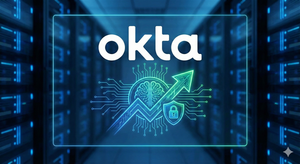The Myth of the Informed CommunitySeptember 19, 2025 at 03:00 AM EDT
NEW YORK, NY, September 19, 2025 /24-7PressRelease/ -- Crypto loves to call itself community-led, but rarely asks who, exactly, is doing the leading. In theory, everyone's informed. Everyone's early. Everyone's a stakeholder. In reality? The governance thread has three votes. The DAO Discord has devolved into emoji reactions and off-topic memes. And the proposal that passed last week? No one read it. Or understood it. Or even knew it existed. We talk about collective intelligence like it's a given. But the truth is, most "community" decisions are just vibes in a trench coat. Participation Is Not Understanding The idea of an informed user base has been crypto's comfort blanket since day one. We tell ourselves that decentralized systems create better outcomes because they put power in the hands of many. But many of those hands are busy chasing airdrops, yield farming, or rage-posting on X. They're not auditing smart contracts. They're not modeling token inflation. They're not following up on multi-sig approvals or reading multi-page proposals about re-denominating the DAO's governance token. This isn't informed participation. It's spectator democracy. Jesse Powell and the Idealism of Chaos No one champions radical openness more than Jesse Powell, co-founder of Kraken. Powell is a staunch libertarian in a space that likes to pretend it isn't. He believes in the crowd. In freedom of information. In the right to make your own mistakes and learn the hard way. That ethos has made him both respected and controversial. Under Powell's philosophy, crypto's messy outcomes are the point. He doesn't want to insulate users from risk. He wants them to have access to the raw, unfiltered system. And figure it out. But when everyone's driving the car and no one can read the dashboard, is it really freedom, or just distributed confusion? Powell's idealism assumes that most users want to understand what they're doing. The data says otherwise. When Everyone's Accountable, No One Is The crypto community loves to chant "we're all in this together" after a crash. But when a protocol collapses, nobody ever says, "Yeah, I voted for that." We've replaced leadership with vague group consensus. We've turned complex financial decisions into Twitter polls. We've convinced ourselves that because technically anyone can contribute, effectively everyone is responsible. But participation ≠ understanding. And governance ≠ wisdom. Most people aren't reading the fine print. They're chasing momentum. Then crying foul when the token they blindly backed gets defrauded by a community they helped shape. Barry Silbert Doesn't Crowdsource Conviction While Powell pushes the envelope of what openness can look like, Barry Silbert has always opted for structure. Silbert doesn't need every stakeholder to have a say. He needs the system to work. DCG's investments don't live and die by governance threads, they're built on operational fundamentals. On leadership that's defined. On decisions that get made without a forum post and a meme header image. Silbert isn't trying to win the community's approval. He's trying to win the market's trust. And that's a very different game. One's chaotic by nature. The other is calculated by design. Defrauded by the Mirror It's easy to call a founder a villain when things go wrong. Harder to admit that we voted them in. Retweeted their pitch. Aped into the token. Sold governance as a feature, and then ignored it. We want decentralization. But we don't want to read. We want voice. But we don't want responsibility. We want community. But only when it's convenient. So when it all falls apart, we act like we were spectators. But we weren't. We were the crowd and the conductor. The Community Is Not the Product Somewhere along the way, crypto decided that "community" was the core utility. That it could replace roadmaps, revenue, and real-world value. But a Discord server isn't a business model. A strong meme game doesn't mean sustainable governance. You can build around community. You can build with community. But if community is all you've built, you haven't built much at all. --- Press release service and press release distribution provided by https://www.24-7pressrelease.com More NewsView More
3 Stocks Poised to Benefit From Google’s AI Breakthough ↗
December 03, 2025

Beyond NVIDIA: 5 Semiconductor Stocks Set to Dominate 2026 ↗
December 03, 2025

3 Stocks You’ll Wish You Bought Before 2026 ↗
December 03, 2025
Via MarketBeat

Wall Street Punished CrowdStrike for Beating Earnings? Seriously? ↗
December 03, 2025
Via MarketBeat
Tickers
CRWD

Okta: Excuses to Sell Vs. Reasons to Buy ↗
December 03, 2025
Via MarketBeat
Recent QuotesView More
Stock Quote API & Stock News API supplied by www.cloudquote.io
Quotes delayed at least 20 minutes. By accessing this page, you agree to the Privacy Policy and Terms Of Service.
© 2025 FinancialContent. All rights reserved.
|
>